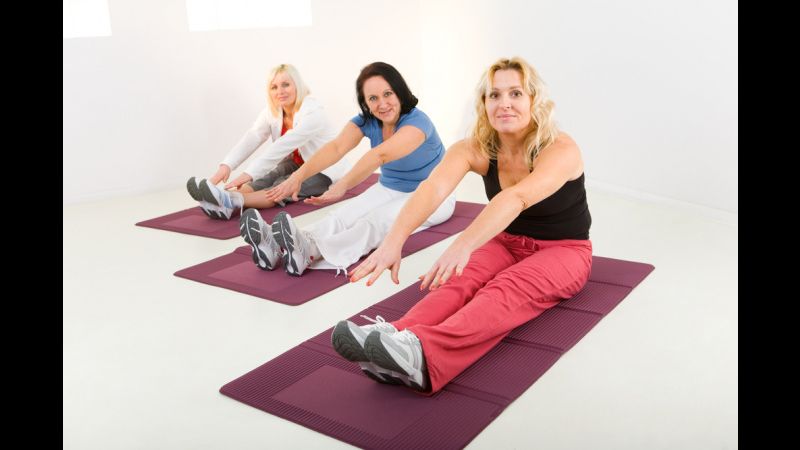Amid our busy schedules, it’s easy to think of exercise as a chore, but senior exercise programs are a key component of healthy aging. While regular physical activity is important for everyone, regardless of age or gender, it’s particularly beneficial for older women experiencing menopause. In honor of National Women’s Health and Fitness Day, we’re taking a look at some exercises for women over 50 that can really benefit health as you age.
Exercises for Women Over 50
While every woman experiences menopause differently, exercise is one of the best things you can do to help your body cope with this biological change. Along with warding off weight gain and a loss of muscle mass, regular physical activity also helps ease menopause symptoms, such as hot flashes, sleep problems and joint pain.
To experience these benefits and to promote your health both pre- and post-menopause, WebMD outlines the following as the best exercises for women over 50:
- Walking/Jogging
- Cycling
- Swimming
- Strength Training
- Dancing
- Yoga/Pilates
- Vigorous house/yard work
- Sports, such as tennis, golf and Pickleball
When building senior exercise programs, consider any limitations you may have and what activities you will enjoy doing the most before you begin. You’ll be much more motivated to stick with your workout regimen if it’s tailored to your abilities and interests.
Senior Fitness Safety Tips
Getting fit later in life may seem challenging, but even just a little bit of exercise can have a big impact on your overall health. By engaging in 150 minutes of moderate aerobic activity each week, you’ll reduce your risk of stroke, osteoporosis and other age-related conditions. But the key to reaping these benefits is exercising safely.
Whether you’re currently exercising five days a week or are just beginning to learn about senior exercise programs, consider the following safety tips from the American Senior Fitness Association:
1. Speak with your doctor first. To avoid risking injury, obtain medical clearance from your doctor before starting a new workout routine, especially if you’re at risk of heart disease or other cardiovascular issues.
2. Create a robust exercise program. Senior exercise programs should include aerobic activities, strength training and stretching exercises. Not only will these exercises improve your balance and flexibility, but having a varied exercise program will also help combat a weight loss plateau. Consult a physical therapist or certified instructor to help you create the program that’s right for you.
3. Don’t forget to warm up and cool down. Resist the temptation to skip the warming up and cooling down phases of your workout routine. These essential steps prevent injuries by ensuring there is enough oxygen in your muscles before you start exercising and that your heart rate returns to normal after exercising.
4. Drink plenty of water. As we age, our bodies lose the ability to detect thirst, so drink lots of water before, during and after working out to stay hydrated.
5. Maintain your mobility and independence. Staying physically active as you age is key to maintaining your mobility and independence. A Mobile Guardian medical alert device will ensure your safety both at home and on-the-go, so whether you’re exercising at home, at the park or in the gym, you’ll be able to receive immediate help no matter where you are.

